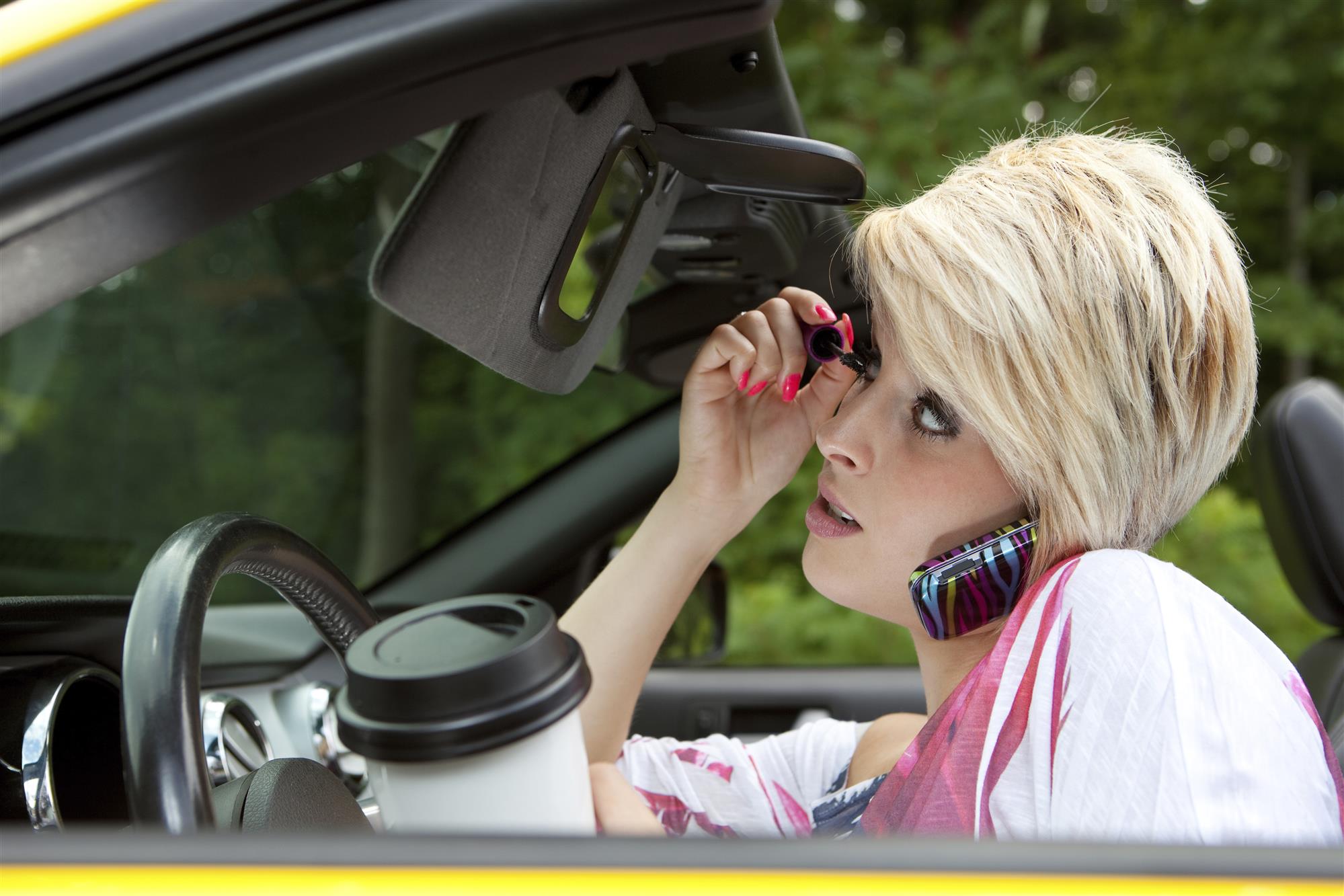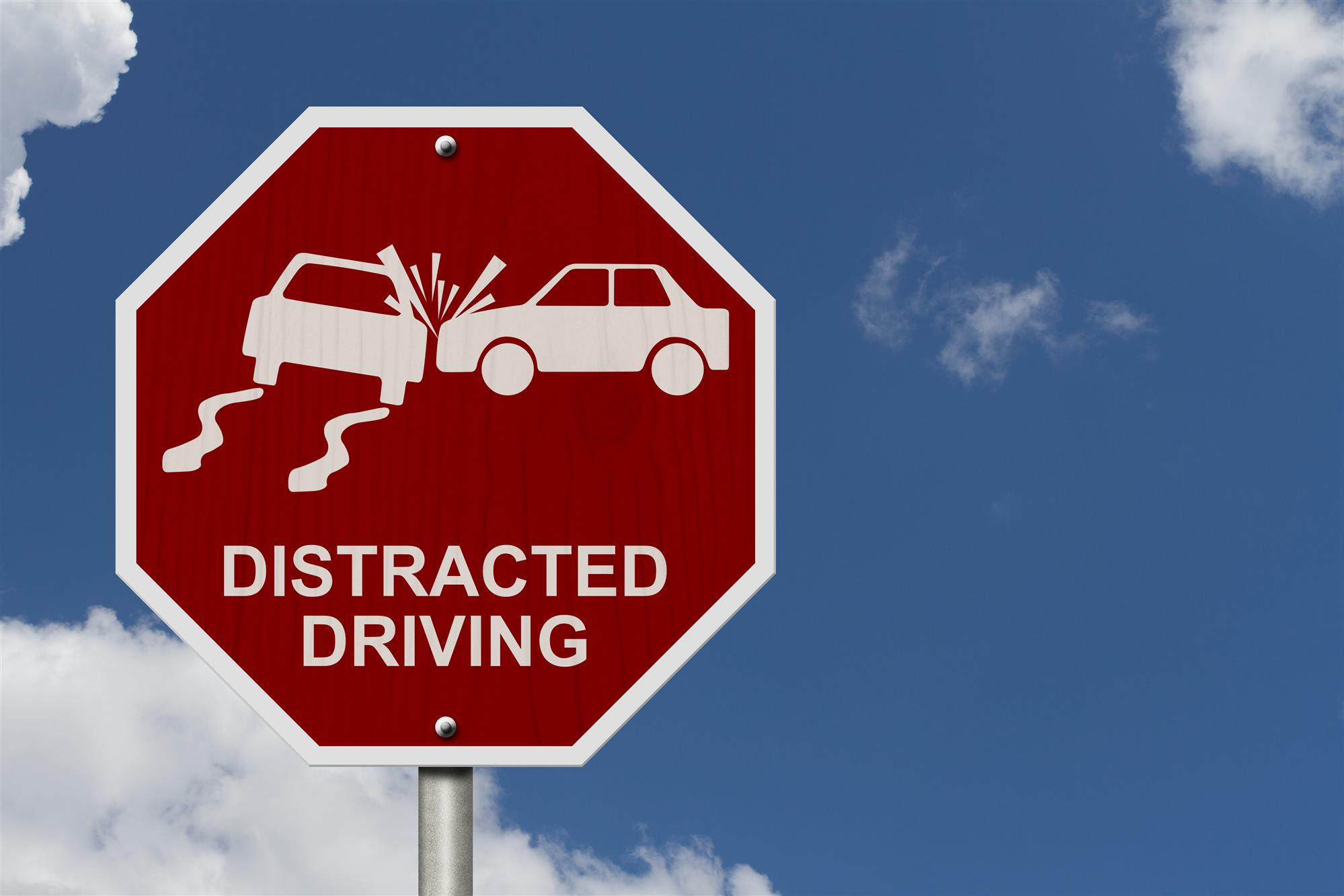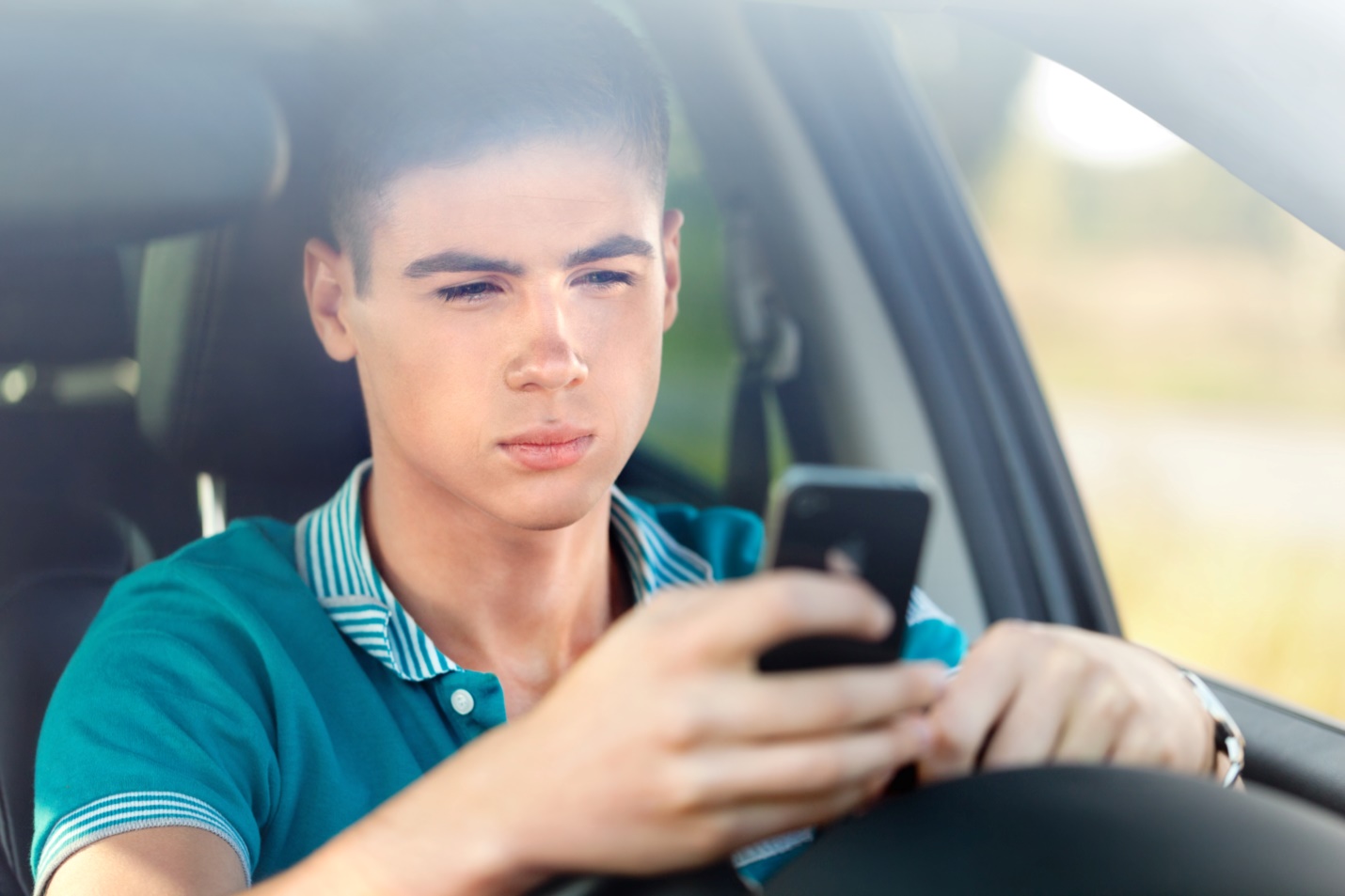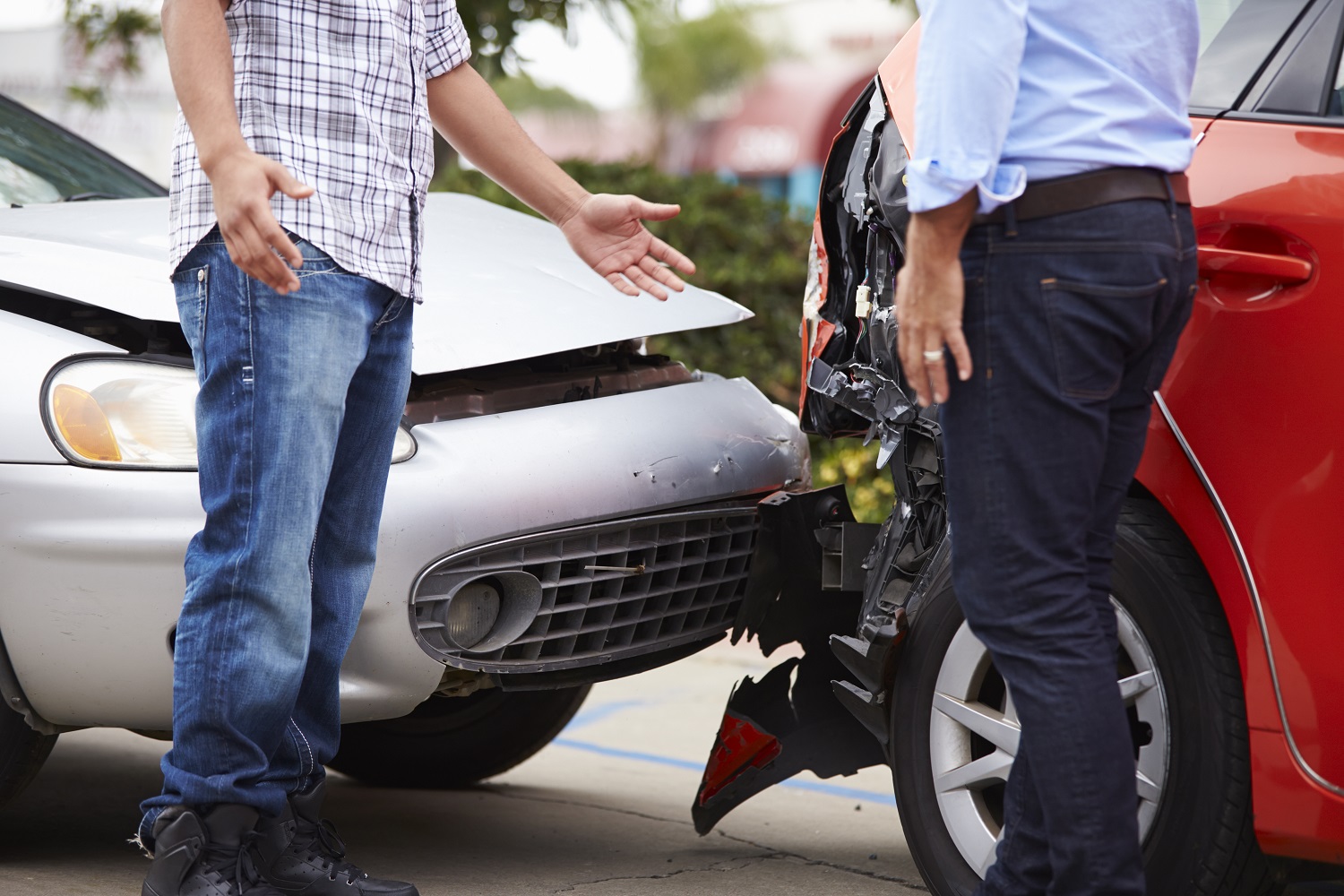Driving a vehicle requires your full attention at all times. Yet, as we become more accustomed to driving and relying on the latest technologies and safety features, we tend to forget about paying attention all the time. It is easy to get distracted and take our eyes off the road for a few seconds or reach to change the radio station. You may even feel bored and start to daydream.
According to the National Highway Traffic Safety Administration, or NHTSA, in 2016, there were 3,450 people killed by distracted driving accidents. In 2015, the NHTSA reported there were 391,000 people injured by distracted driving accidents.1
There are three generalized types of distracted driving that could result in car accidents: visual distractions, manual distractions, and cognitive distractions. It is best to look at each of these distractions individually. Then we will look at certain situations where a driver could be engaging in distracted driving that falls into more than one of these categories.
Visual Distractions
Visual distractions are any types of distractions that take your eyes off the road for any period of time. This could include doing any of the following:
- Looking at the GPS display.
- Glancing at your smartphone display for incoming text messages.
- Using the rearview mirror to put on makeup or shave.
- Looking down at the floor for something you dropped.
- Looking at the infotainment screen to adjust climate controls or change radio stations.
- Looking at a car accident scene as you drive past it.
Manual Distractions
Manual distractions are those distractions where you need to remove one or both hands from the steering wheel for any length of time. Some common manual distractions are:
- Eating food and drinking beverages.
- Adjusting your seatbelt.
- Reaching into the back seat to get something.
- Attempting to get something out of your pocket, like your smartphone or wallet.
- Trying to find something in your purse, backpack or briefcase.
- Smoking tobacco products or using a vaping device.
- Handing your child an item or food.
- Using the touchscreen on your infotainment system.
- Typing text messages on your smartphone.
Cognitive Distractions
Cognitive distractions are those that take your mind off driving and paying attention to the road and other drivers. These types of distractions could include:
- Daydreaming, drowsy driving, or falling asleep.
- Talking to others in the car.
- Thinking about things you need to do.
- Thinking about an upsetting situation or problem you are facing.
- Getting angry while driving—road rage.
- Driving while under the influence of drugs or alcohol.
Combination Distractions
As you can see from our examples above, some of the distractions could fall into multiple categories. One of the most frequent distractions drivers commit is texting while driving. Texting while driving falls under all three categories, and it takes your eyes off the road, requires you to take at least one hand off the wheel, and requires you to think about the text conversation rather than on your driving.
Another type of combination distraction that is equally as bad as texting while driving is using your smartphone to browse and post social media status updates. This bad driving habit also falls into all three categories.
The Consequences of Distracted Driving
You might not think much about the consequence of distracted driving as you are sipping on your morning coffee while driving to work in rush hour traffic. You may even pass people on the freeway who are looking down at their smartphones and texting. However, what would happen if you went to reach for your coffee and dropped it onto your lap instead? What if the driver you are passing, who is texting, suddenly swerves into your lane?
According to the NHTSA, most drivers have engaged in one or more forms of distracted driving at some point. Younger and inexperienced drivers under the age of 20 have the highest proportion of distracted driving fatalities. Yet, they are not alone, and there are over 800,000 vehicles on the road at any given time that are being driven by someone with a smartphone.2
If you are involved in a distracted driving accident and were responsible for causing it, there can be very serious consequences. Depending on the number of damages and personal injuries caused, you could be looking at one or more of the following:
- Being issued a ticket by law enforcement for distracted driving.
- Having your car insurance rates increase because of the accident.
- Being sued by the other parties and their car accident lawyers for any damages and injuries you caused them.
- Being responsible for the death of other drivers or their passengers.
- Being charged with intoxicated manslaughter or vehicular manslaughter.
Do you really want to be responsible for causing serious personal injuries or even death to another driver on the road simply because you had to read or send a text message or engage in some other form of distracted driving? It is always better to practice safe driving habits to avoid distractions.
Tips for Preventing Distracted Driving
- Put the smartphone down. There is no phone call, text message, or social media update that cannot wait until you are not driving.
- Pull over and get off the road. If you absolutely have to take that phone call, read a text message, put on makeup, or anything else, do it while parked in a safe location.
- Keep personal disagreement and arguments out of the car. Disagreements and arguments should not be engaged in while driving, as they take your mind off the road. They can also anger you and set off road rage.
- Make all adjustments before driving. Adjust mirrors, climate controls, and the radio station; plug in hands-free devices; and program the GPS before you put the car in drive.
- Avoid eating and drinking while driving. If you are hungry, stop and take ten minutes to enjoy your meal while parked in your car. If you are thirsty, avoid reaching for your drink while the car is in motion.
- Take advantage of modern technologies. Most new vehicles include hands-free options for your smartphone so you can talk and text using your voice with the appropriate infotainment app. In addition, you will find buttons to change radio stations, speaker volume, and other things all on the steering wheel so you don’t have to take your hands off the wheel or your eyes off the road.
- Make sure you are well rested. If you are tired, don’t get behind the wheel. If you find you are drifting off to sleep, pull over and park in a safe location where you can take a short
- Don’t drive while under the influence. Even if you seem fine, it is better to rely on a designated driver, taxi, or ride-share service to get where you need to go.
Texas Distracted Driving Laws
In recent years, Texas has made changes to its distracted driving laws. As of September 1, 2017, reading, writing, or sending text messages while driving is illegal. However, it is not against the law to use hands-free options to talk or read, write, or send text messages.
For drivers under the age of 18, any cell phone or smartphone usage while driving, including hands-free options, is against the law. Furthermore, the use of cellular devices is illegal when driving through school zones, and bus drivers are prohibited from using their cell phones and smartphones while driving.3
Getting Help from a Car Accident Lawyer
If you are involved in a distracted driving accident, it is worth your time to speak to a car accident lawyer as soon as possible. Texas uses what is called the comparative negligence rule. What this means is, even if you were partially at fault, you can still seek damages from the other driver, as long as he or she was 51% or more responsible.
Another reason you will want to get help from an auto accident attorney is to ensure you receive a fair and just settlement amount. Insurance companies have their own lawyers on retainer that they refer to for advice on how to get you to settle for the least amount possible. It only makes sense to get your own legal advice and representation to protect your rights and interests.
For a FREE consultation appointment with one of our Houston TX auto accident attorneys, please contact Schechter, McElwee, Shaffer & Harris, L.L.P. at 713.574.5089 today!
Sources:

 Over 300 Google 5 Star Reviews
Over 300 Google 5 Star Reviews










